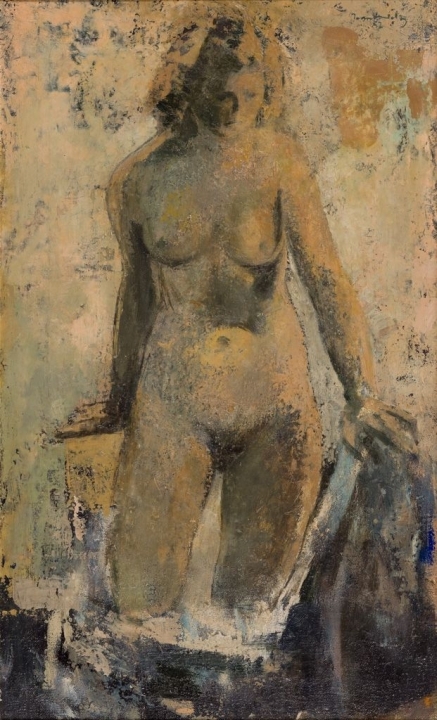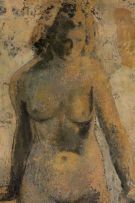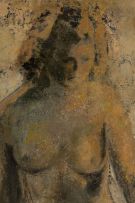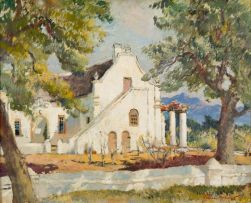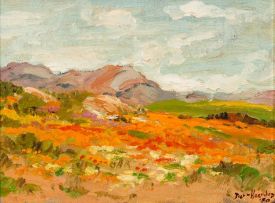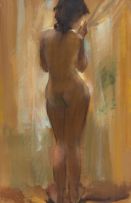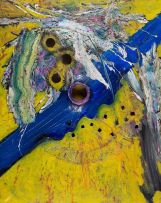South African and International Art
Live Auction, 20 May 2013
Evening Sale
Incl. Buyer's Premium & VAT
About this Item
signed and dated 52
Notes
The evidence of Welz's architectural background is clear in his confident line-work and compositional structure. This, combined with his consummate draughtsmanship, renders the form and overt spatial awareness for which his work is renowned. In the present example, these features integrate to pronounce the form of the model and produce a vividly three-dimensional image. The figure appears detached from the background and her physique materialises sculpturally. To such is the extent that even the forms supporting her appear to recede into the environment, placing the emphasis entirely on the subject. Elza Miles elucidates: "He purposefully used the ambiguity of line and shape so that unexpected forms emerge as shadowy presences and create a tension between what is fore- and what is background."1
The painting discussed here conveys a sense of the ephemeral quality of living beauty and supports Esme Berman's observation of Welz's paintings that "are invariably tranquil, cloaked frequently in a kind of atmospheric mist."2 She elaborates on the distinguishing feature of his nudes: "any impression of sensuousness resides only in the quality of his technique: the images themselves are eminently chaste, the artist quietly detached."3
Looking at Welz's work through the lens of today's aesthetic, it is clear the pioneering spirit of the artist in his use of colour and tonality. The pictorial harmony in this painting is consolidated through the artist's sensitive co-ordination of textures and tone. Hues that today are the height of fashion, were employed by Welz as early as the nineteen thirties and forties. The current lot displays clearly his mastery of skin tones where the sitter, ostensibly the Afrikaans actress Miemsie Retief, is rendered in a host of colours ranging from dark blues, greens and greys, to earthy yellows, azure and khakis, with highlights in a variation of pinks, mustards and creams. The abundance of individual colour areas produce, holistically, a seductive skin tone more expressive than reality, without being unfaithful to the subject portrayed.
1 Miles, Elza. The World of Jean Welz. Fernwood Press, Johannesburg. 1997. page 8-9
2 Berman, Esme. The Story of South African Painting. A.A. Balkema, Cape Town and Rotterdam. 1974. page 111
3 Ibid. page 113
